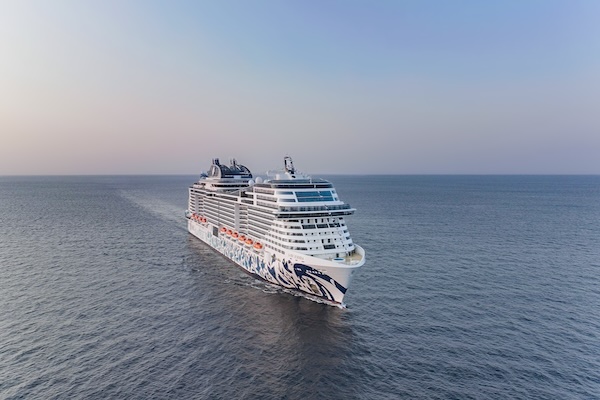Last year marked a pivotal recovery phase for MSC Cruises, as passenger numbers surged to over four million, nearly doubling from 2022.
This growth signifies a promising recovery within the cruise industry, driven by strategic deployments and enhanced service offerings across MSC’s fleet.
Rising Passenger Numbers
In 2023, MSC Cruises recorded a substantial increase in passenger numbers, almost doubling its figures from the previous year to over four million across its fleet of 22 ships. This dramatic rise from 2.1 million in 2022 was attributed to a low base the previous year due to recovery from the Covid-19 pandemic. Additionally, the introduction of new ships and improved occupancy rates contributed significantly to this growth. The data presents a strong rebound in the cruise industry, reflecting increased consumer confidence and demand.
Operational Expansion and Innovations
The increase in operating days from 5,863 to 7,669 over 12 months highlights the operational expansion of MSC Cruises. In 2023, the company introduced its luxury arm, Explora Journeys, which carried 8,180 passengers since its launch mid-year. The significant hiring of 18,866 new crew members underscores the company’s commitment to expanding its services and improving its offerings. This growth also points to MSC Cruises’ strategy to invest in human resources, ensuring a diverse and well-trained workforce drawn from 138 different nationalities worldwide.
Sustainability Initiatives
MSC Cruises outlined its sustainability goals in the 2023 report, showcasing efforts to increase shore power plug-in capabilities from 44 to 220 connections by end of year. MSC Euribia became the second vessel powered by liquified natural gas (LNG), marking a pivotal shift towards decarbonisation. The company emphasised the benefits of fossil LNG for immediate GHG emission reductions, along with future transitions to renewable alternatives. Moreover, the fleet has shown improvement in carbon intensity, achieving a 6.5% reduction from 2022 and a notable 37.8% since 2008, keeping them on track to meet the International Maritime Organisation’s targets.
Water Management Strategies
Efficient freshwater management saw MSC Cruises producing 87.2% of their water needs through desalination, amounting to over 6.4 million cubic metres. Notable reductions in onboard water consumption were achieved, decreasing from 226 litres per passenger day in 2022 to 187 litres in 2023. These results underscore the company’s commitment to environmental stewardship, prioritising resource efficiency, and reducing environmental impact. Such initiatives align with global sustainability trends and enhance the company’s brand reputation in the marketplace.
Ongoing Commitment to Decarbonisation
MSC Cruises continues to support decarbonisation by expanding its LNG-powered fleet. Alongside the MSC Euribia, the upcoming addition of three LNG-powered ships, including the MSC World America in 2024, further represents this commitment. These efforts not only highlight the company’s focus on eco-friendly operations but also ensure compliance with maritime regulations. As part of their broader strategy, the company urges improvements in shore power infrastructure to facilitate these goals, which is echoed by other industry leaders like Carnival Corporation’s CEO.
Leadership’s Vision for Future Sustainability
In the report, Executive Chairman Pierfrancesco Vago expressed the necessity for collective industry efforts in achieving net zero emissions. MSC Cruises is proactively collaborating with shipyards, technology providers, and other stakeholders to drive sustainable maritime practices. The company’s strategy underscores the importance of regulatory frameworks that support, rather than hinder, their environmental objectives. Vago further stressed the significance of shore power, describing its role as integral to reducing emissions and achieving sustainability targets.
The Future of MSC Cruises
With a robust plan for future growth, MSC Cruises sets a benchmark in sustainable maritime practices and passenger services. The anticipated expansions in the LNG fleet and advancing shore power connections form a critical part of their strategy. By continuously enhancing their operations and sustainability measures, MSC Cruises aims to stay at the forefront of the cruise industry, addressing both environmental concerns and the evolving needs of travellers.
MSC Cruises has demonstrated resilience and adaptability, evidenced by its significant passenger growth and commitment to sustainability.
By implementing forward-looking strategies, the company not only boosted its operational success but also reinforced its role as a leader in sustainable cruising.

